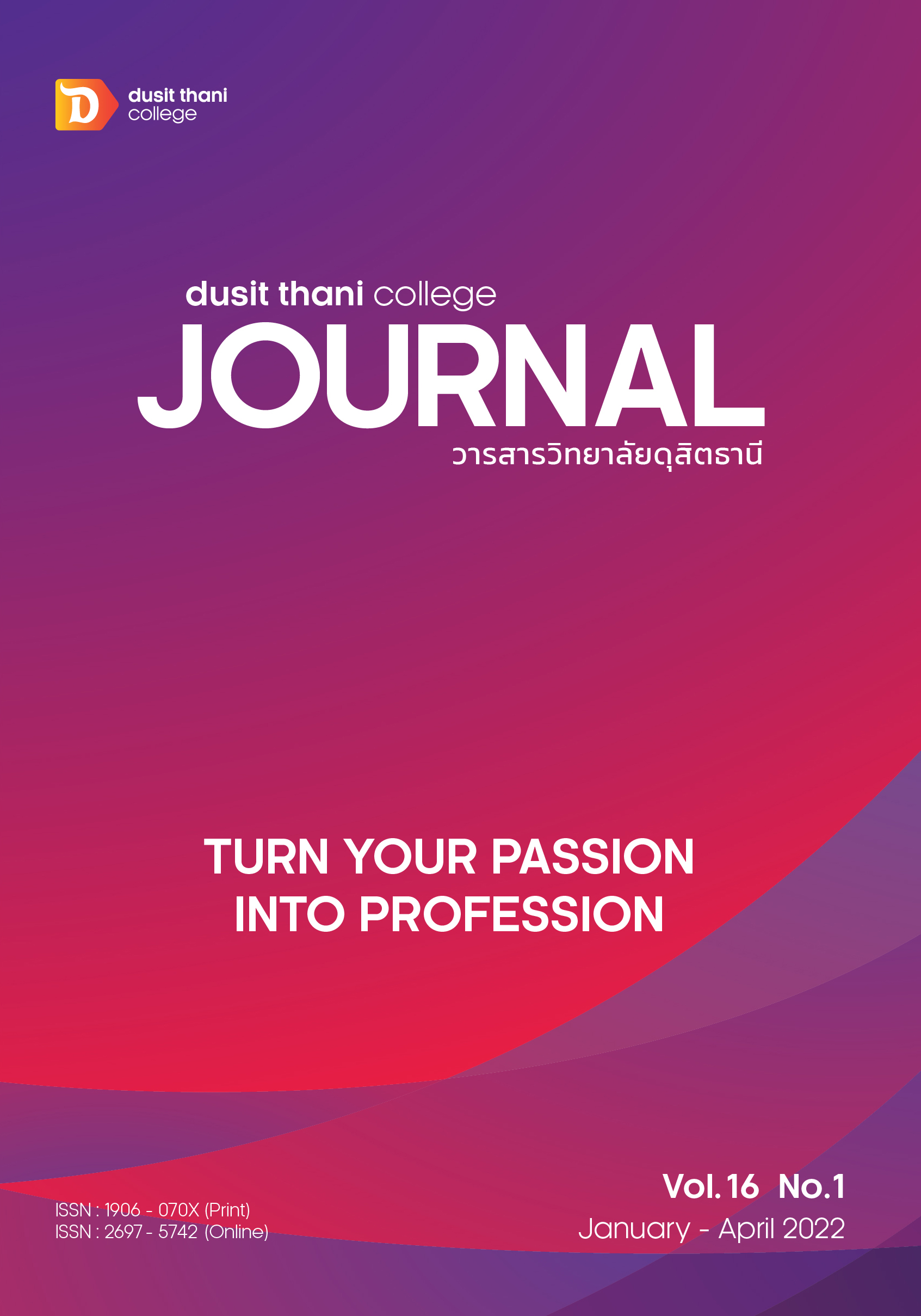Food Waste Management of Restaurant Business in Koh Tao Surat Thani
Main Article Content
Abstract
The objectives of this studies were, 1) to studies principle and conceptual for food waste management of the restaurant. 2) to studies food waste management methods and practices of the restaurant at Koh Tao in Surat Thani Province. 3) to studies problems, obstacles, and solutions practices for food waste management of the restaurant at Koh Tao in Surat Thani Province. And 4) presenting practices for food waste management of the restaurant at Koh Tao in Surat Thani Province. This was qualitative research with collecting data by interviewing 9 restaurant business owner, and government officials in Koh Tao.
The studies were showed that, 1) Principle and conceptual for food waste management of the restaurant. There were knowledge and understanding for solid waste types separation and waste able to be reused toward benefit. 2) Waste management methods and practices were, using long shelf life raw materials cooking to first for make raw materials not be remaining and deteriorate. And using food waste creating new food items in addition to main food items. 3) For problems and obstacles of the restaurant at Koh Tao in Surat Thani Province. That was owners and employees with insufficient knowledge to food waste management in each category that the conversant with to food waste management follow traditional process. Including employees with insufficient knowledge about the raw material management in the operation, genuinely. Also, employees with insufficient knowledge of methods the raw materials rotation and storage. And problems arising from the work of employees in the restaurant with inability to communicate and coordinate was rather difficult, reason, most employees were foreigners. And 4)Practices food waste management by requesting cooperation from government agencies to organized training about the food waste management. Also, there should be a practices manual for the food waste management, employee training organized
Article Details

This work is licensed under a Creative Commons Attribution-NonCommercial-NoDerivatives 4.0 International License.
Article Screening Policy
- All research and academic articles to be published must be considered and screened by three peer reviews in the relevant field / article.
- All articles, texts, illustrations and tables published in the journal are the personal opinions of the authors. Editors don't always have to agree. And no responsibility whatsoever is the sole responsibility of the author.
- The articles to be published must never be published. Where did you first publish? And not in the consideration of other journals If the audit found that there has been a duplicate publication It is the sole responsibility of the author.
- Any article that the reader sees as being plagiarized or impersonated without reference. Or mislead the work of the author Please let the journal editor know it will be your greatest blessing.
References
Chaiyasut, C. (2010). Bioextract. Pathumthani: National Science and Technology Development Agency.
Chalermchat Saepaisarn. (2013). Behavior of solid waste management in communities municipal Chae, Khonburi, Nakhon Ratchasima. Master of Engineering Thesis, Department of Civil Engineering, School of Engineering, Sura Naree University of Technology.
Department of Environmental Quality Promotion. (2020). Guidelines and prerequisites for reducing and utilizing solid waste. Bangkok: Department of Environmental Quality Promotion.
Juan Luis Andre Monzón Santo (2017). Food Waste Management – Perceptions, Decisions, and Actions: The case of Guatemala City Department Restaurants. Uppsala Umiversitet
Koh Tao Tourism Association. Koh Tao history. Surat Thani: Suratprinting.
Mei, C., Xin, Q., & Longjiang, Z. (2014). Public Participation in Environmental Management in China: Status Quo and Mode Innovation. Environ Manage, 55(3), 523-35.
Pollution Control Department. (2019). Solid waste management. Bangkok: Pollution Control Department.
Sharp, A. and Sang-Arun, J. (2012).A Guide for Sustainable Urban Organic Waste Management in Thailand: Combining Food, Energy, and Climate Co-Benefits. Japan: Institute for Global Environmental StrategiesWilert Wanatip. (2018). Waste Management Process to Promote on Good Environment of Local Administrative Organization. Mahasarakham Hospital Journal. (16),2. 123-132.


